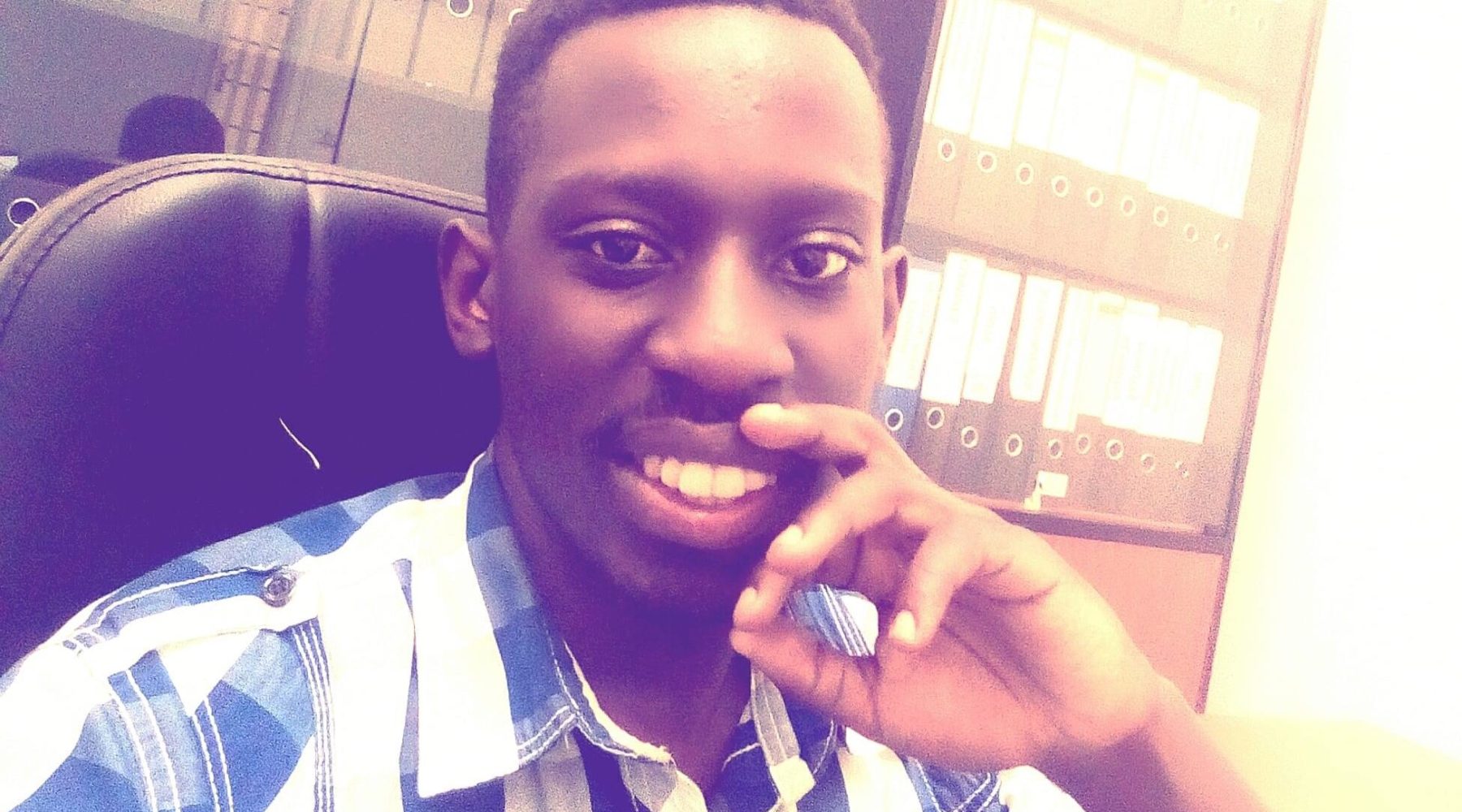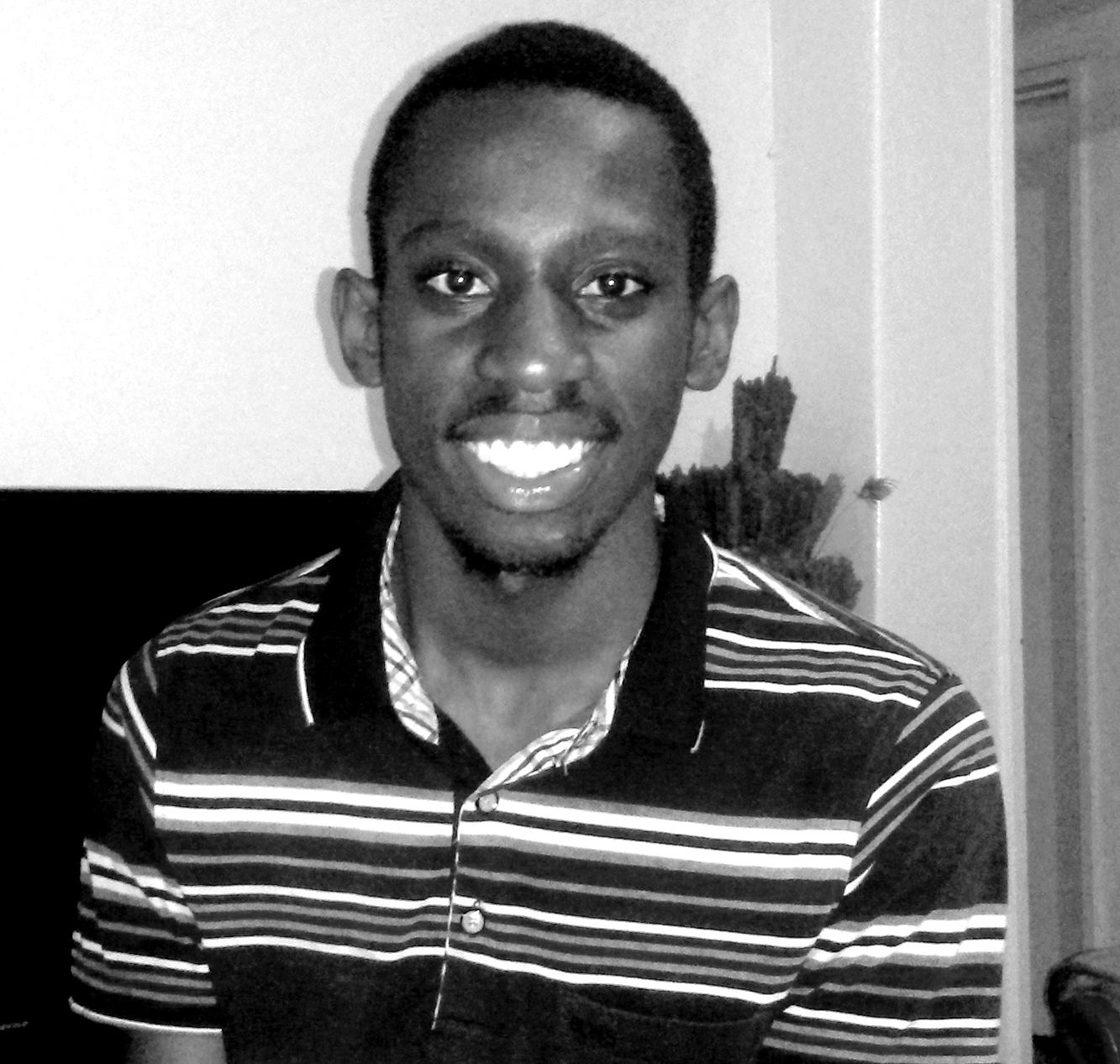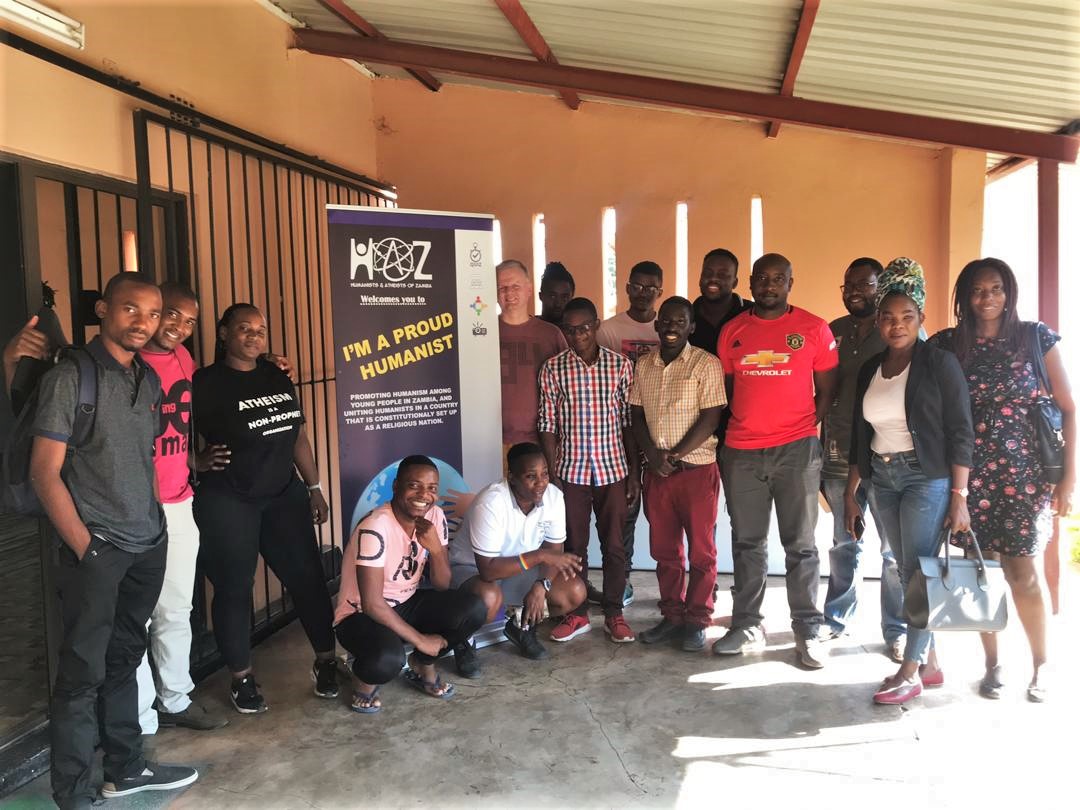
Larry Tepa from Zambia: “Ubuntu means ‘I am because we are’, let’s roll up our sleeves and work together then”
#GlobalHumanismNow: an update from Humanists & Atheists of Zambia

#GlobalHumanismNow: an update from Humanists & Atheists of Zambia
#GlobalHumanismNow is a series of mini-interviews with our Members and Associates from all around the world where we ask them how they are coping with the global coronavirus emergency, to explain what initiatives they are taking, and to tell us how the global humanist community can support them.
All interviews are available here.
Today we speak with Larry Tepa, President of Humanists & Atheists of Zambia.
Humanists International: Hi Larry, thank you for accepting our invitation. What is the situation like in Zambia?
 Larry: The current global emergency has ushered the country into a state of uncertainty. As of [17 April 2020], Zambia is not under lockdown, but the harsh economic repercussions of the pandemic have forced residents to ignore health guidelines that have been put in place in order for them to earn a living.
Larry: The current global emergency has ushered the country into a state of uncertainty. As of [17 April 2020], Zambia is not under lockdown, but the harsh economic repercussions of the pandemic have forced residents to ignore health guidelines that have been put in place in order for them to earn a living.
The majority of people in Zambia live on a hand to mouth basis, and below the poverty line, making it impossible to adhere to the health guidelines. For many people, there’s simply no choice if the only options available to them are to choose between starvation and the possible exposure to covid-19.
(UPDATE: as of 21 April, Zambia has 65 confirmed cases and 3 deaths)
How has the government responded to the crisis?
Most African countries are awfully ill-equipped to cope with the pandemic and Zambia is not an exception. Experts predict it could potentially devastate the fragile health systems already plagued by inadequate funding and equipment.
The Zambian Government has however implemented temporal measures that will encourage social distancing and residents to stay at home. These measures include: banning all social events; closing bars, gyms, schools and churches; and restricting travels by air and non-essential movements. The markets and grocery shops remain open, and other essential services such as hospitals and law enforcement agencies.
The economic repercussions have been devastating, leaving the country with very few options with regards to arising challenges resulting from the increment of prices of goods and services. A widespread sense of hopelessness has turned into despair because adjustment policies have further threatened wages and jobs of multiple residents that work in mines, restaurants, bars and other services that are considered non-essential.
How has the crisis affected your organization and the individuals within it?

Participants at the “I’m a proud humanist” conference, organized by Humanists & Atheists of Zambia in 2019
Humanists & Atheists of Zambia had a lot of plans for this year. Unfortunately, we had to cancel all events and social gatherings due to the outbreak of the pandemic. The board made it clear that the safety of the staff, our members and supporters was of the utmost importance and it was decided that all of our planned projects will have to be postponed indefinitely. Our members and supporters have been incredibly supportive and understanding during this difficult period.
How is your organization responding to the crisis?
We decided to rise up to the challenge and do something about the situation by making a call of action to all of our members and supporters, asking them to rise up as a humanist community and get involved in the fight.
We recognized that a good percentage of Zambians live below the poverty line and survive on less than a dollar a day. The hardship that this emergency would put the poor through was nothing close to the picture words could ever paint. So we created a special group, where we can discuss issues related to fundraising and other efforts the organization will put together to make a difference. The results have been nothing short of amazing.
How do you think we should face this emergency as humanists? Which humanist principles should we value most right now?
During this time humanists should recognize the value of life and the need to preserve it. Regardless of the differences in philosophical beliefs that people might have, the important thing is that we get through this pandemic and we do it together.
Zambia and many other Southern African countries subscribe to a philosophy that has in recent times been referred to as African humanism. Ubuntu, which essentially means “I am, because you are”. The word itself is part of the Zulu phrase “Umuntu ngumuntu ngabantu”, which literally means that a person is a person through other people. If there’s any lesson one can derive from ubuntu is that we need to work with each other in order to get through this difficult period, because as humanists, humanity is a quality we owe to each other, if humanity wins then we all win.
How can the international community support your efforts?

In most developing countries, we are significantly lacking on all fronts, the international community should recognize that even though the hard-hit places are outside the African continent, most developing countries in Africa have ill-equipped health facilities, populations with rife health conditions such as HIV and tuberculosis, and some of these countries still have populations struggling to ensure access to clean water, food and shelter.
The aforementioned have the potential to consequently speed up the spread of the virus to a much more devastating effect as compared to what has been witnessed in Europe and North America. It is therefore my plea to the international community to support projects aimed at the sensitization and enforcement of preventive measures in developing countries.
And what is your message to the global humanist community?
Humanism calls for us to firmly recognize our capacity to be strong and resilient in the face adversity, to rise up against injustice and be the voice of the voiceless. If we can roll up our sleeves and work together, we can set an example of what it truly means to be a humanist. Every year we organize campaigns with the ambition to change the world, and this year, in the middle of a global emergency, we can work together as a community and lead the way to be the change that we want to see. Time and time again, I am reminded of the change people committed to a cause can bring about, and I am inspired by their incredible stories. Today with each and every decision we all make, during this time, in this moment, we are writing our own stories and we are inspiring others to follow in the footprints we leave behind.
Thanks, Larry! And please stay safe!
Thanks a lot for this wonderful opportunity, Giovanni!
If you represent a Member or Associate of Humanists International and you want to participate in the #GlobalHumanismNow series, please contact us at [email protected]